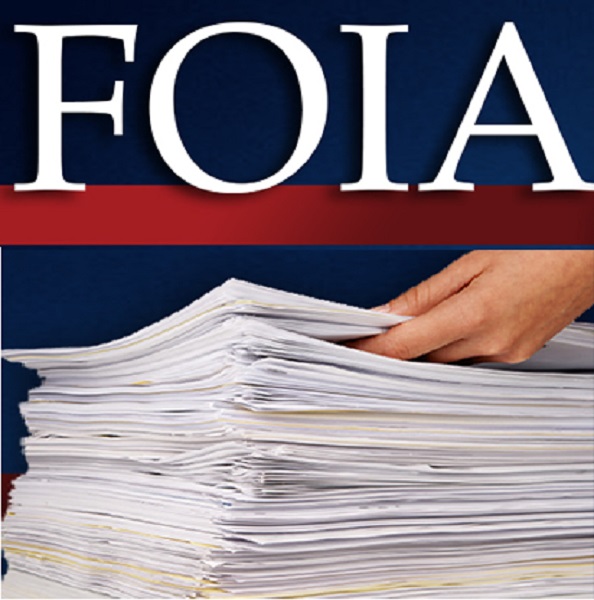Fix the Court Sues DOJ for Withholding Records Related to SCOTUS Travel
 Fix the Court filed a complaint in federal court late Tuesday against the Justice Department over an unfulfilled FOIA request that seeks records related to the recent travel of Supreme Court justices.
Fix the Court filed a complaint in federal court late Tuesday against the Justice Department over an unfulfilled FOIA request that seeks records related to the recent travel of Supreme Court justices.
When the justices leave Washington, the U.S. Marshals Service, a division of DOJ, is largely responsible for their security. USMS coordinates with the Marshal of the Court either to send deputy U.S. marshals, upon request, to the locations to which a justice is traveling, accompany them to their destination or both.
FTC’s FOIA, submitted on Sept. 23, 2022, seeks the “Request for Special Assignment Resources” reports that were filed whenever a deputy marshal provided a justice with security coverage between Jan. 1, 2018 and Sept. 30, 2022.
The reports, which FTC has sued for in the past, state which justice (typically redacted though often discernible) has requested coverage, a description of the trip, the itinerary, when and where deputies will cover the justice, which deputies will perform the coverage, its cost (the judiciary reimburses USMS) and any security threats to the justice.
“There are two sides to the request that are equally important. First, in today’s political environment, the public has a right to know whether our top judicial officials have ample security coverage when they leave Washington. Second, given the obvious ethics issues that arise when a justice is given a free trip, especially since these trips are often omitted from their annual disclosures, the public has a right to know more about them. Unless you run into a justice at, say, a ski resort, an opera festival or a baseball game, a records request is the only way to obtain this information and understand the scope of their perks,” FTC executive director Gabe Roth said.
FTC has twice before sued DOJ over unanswered USMS FOIAs, first in 2017 for SCOTUS travel records from July 2015, plus documents related to the marshals’ coverage, or lack thereof, at the time of Justice Scalia’s death. In 2019, FTC sued for documents related to the justices travel between Jan. 1, 2016 and Dec. 31, 2017.
From the documents FTC received from those lawsuits, we learned the protocols for when USMS provides coverage to the justices; found some previously unreported details about Justice Scalia’s ultimate trip; saw the likelihood, due to large blocks of blacked-out text under the “security threats” tab, that there were threats made against Justices Thomas, Ginsburg and Sotomayor; and uncovered information about justices’ trips that were not included in their annual disclosures.
Justices’ disclosures are by law supposed to list free or reimbursed travel over a certain dollar threshold. (In 2022, that was $415; see pp. 35-38 for more.) There is no penalty if a justice leaves off a free trip, of course, but justices in recent years have refiled their disclosures when FTC has brought omitted trips to the Court’s attention. In the case of a Justice Sotomayor-omitted trip, we learned via state records request that the justice was given several free rooms in one of Rhode Island’s fanciest hotels; had a motorcade to and from the airport and had 125 copies of her autobiography ordered by the university.
Justices are also permitted to leave off travel when they deem it “personal hospitality,” though FTC maintains that that term is inexact (see p. 6).
Justice Alito has seemingly availed himself of this exemption since no trips to Jackson Hole, Wyo., where he was reportedly entertained by an Ohio couple seeking to influence the Court’s decisions, have ever appeared on his disclosures. (He did spend five days in Cheyenne in 2008 according to that year’s report.) Had he not passed away on the trip, Justice Scalia likely would have omitted his flight to and stay at the Cibolo Creek Ranch in Feb. 2016 due to that exemption, which he allegedly took dozens of times. Justice Ginsburg’s 2015 trip to the Glimmerglass Festival was left off her disclosure, and it defies belief that during her nine days in Upstate New York and Western Massachusetts (pp. 75-85) that July she personally paid for every meal and hotel.
Federal agencies and subagencies are generally required to produce records within 20 business days of a FOIA request being filed. Tuesday was 75 business days post-FTC’s request.
The case is Fix the Court v. Department of Justice, 23-133, in the U.S. District Court for the District of Columbia.